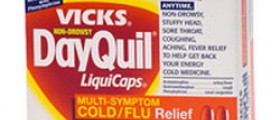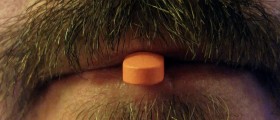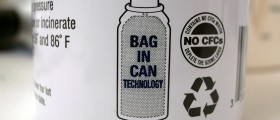
Nasal congestion is a characteristic of many infections of the upper respiratory tract. It also affects people suffering from asthma and those suffering from allergies. Nasal congestion is not considered serious problem but it may bother patients especially during night. Nasal congestion can be easily dealt with certain nasal decongestants which are either prescribed by a doctor or available over-the counter. Still prior using any of these drugs it is essential to investigate all the side effects and possible interactions if a patient is also taking some other medications.
Nasal Decongestants
The basic role of nasal decongestants is to relieve nasal and sinus decongestion caused by allergies, cold or other infections of the upper respiratory tract. These medications narrow the blood vessels in the nose and consequently reduce the swelling of the mucous membrane. They do not treat the underlying cause of the illness and only deal with symptoms of congestion. Many nasal decongestants are available over-the-counter and they can be taken either orally or in a form of nasal sprays.
Majority of nasal decongestants contain pseudoephedrine and there is even combination of pseudoephedrine and other drugs such as antihistamine. Nasal decongestants containing phenylpropanolamine are no longer available over-the-counter since they were associated with increased risk of stroke in people between the age of 18 and 49.
Side Effects of Nasal Decongestants
General side effects of nasal decongestants include nervousness, dizziness and palpitations.
In case of oral decongestants patients may complain about nervousness, restlessness and excitability. Additional side effects are dizziness, drowsiness, headaches, nausea, weakness and sleeping problems. In case of any of the previously mentioned symptoms patients are due to discontinue the drug.
Nasal sprays may cause sneezing, temporary burning, stinging, dryness of the nasal cavity and local irritation.
If there are more serious side effects such as increased blood pressure, fast and/or irregular heartbeat, intensive headache, shaking and convulsions patients must consult their doctors as soon as possible.
Possible Interactions and Precautions
These medications may interact with certain drugs and this is why health care providers must be familiar with all the medications patients regularly take. This particularly refers to asthma medicines, diet pills, insulin, medications which lower the blood pressure, monoamine oxidase inhibitors and seizure disorder drugs. And one must pay attention and reduce, if not eliminate, the intake of caffeine since when it is taken together with pseudoephedrine it may increase the chance of side effects.
Nasal decongestants are not given to patients suffering from diabetes, high blood pressure, kidney disease, seizure disorder, asthma, glaucoma, thyroid disease etc. Pregnant women are supposed to consult their doctor prior to taking any of the available nasal decongestants. This also refers to mothers who breastfeed their infants. And finally, special attention is paid on elderly patients who are more susceptible to side effects of nasal decongestants.
- healthfinder.gov/api/Outlink/Search/http/www.fda.gov/Drugs/ResourcesForYou/ucm163354.htm?_label_=Learn+how+to+avoid+problems+from+taking+your+medicine+with+other+medicines+or+certain+foods
- www.betterhealth.vic.gov.au/health/conditionsandtreatments/sinusitis?viewAsPdf=true
- commons.wikimedia.org/wiki/File:Nasal_bone.png

















Your thoughts on this
Loading...